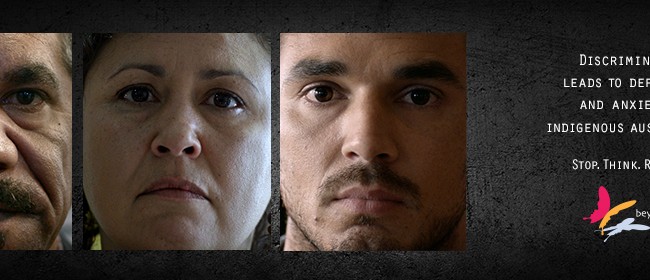Have you seen that Beyondblue advertisement where the passenger on the bus doesn’t want to sit next to the brown-skinned man? Or the interviewer doesn’t want to hire the brown-skinned woman? These are the sorts of experiences that I have in mind when I refer to skin-colour privilege: ones that people who enjoy light-skin privilege don’t suffer. They are experiences that affect not only mental health but physical health, education, employment, incarceration rates and life expectancy.
Skin-colour privilege is not a particularly neat or simple phenomenon. The concept is an attempt to contrast the disadvantages experienced by people with brown skin with the freedoms enjoyed by those with pale skin. Pale-skinned people don’t have to go about their lives wondering whether the colour of their skin is playing a role in them being given lower marks by a teacher, being randomly frisked by the police, or not being served when waiting at a counter.
People who have light-skin privilege tend to get defensive about the concept, as if naming their light-skin privilege entails that they are privileged per se, or that they have not suffered in their lives. I agree that the concept is less than perfect: fair skin also comes with disadvantages, and people with fair skin may suffer disadvantage unrelated to their skin colour. But it is experiences like those in the Beyondblue advertisement that position me as Black, and skin-colour privilege is the best available concept to capture that. It is important for me to be able to articulate the experiences that constitute me as Black in a white-dominated society, and so those who enjoy the privileges associated with their skin will just have to tolerate being reminded of that privilege.
On past occasions when I’ve said that there are privileges associated with skin colour, even for Aboriginal people, I have been accused of saying that light-skinned Aboriginal people are not Aboriginal, or that they are not Black. But I am neither saying nor implying this. Being more privileged does not make you less Aboriginal or less Black. Also, light skin is not synonymous with the racial category ‘white’. While my skin colour contributes to my racial identity, this is not the case for all Black people. Commenting on skin colour is therefore not necessarily a comment on racial category.
In saying that there is a privilege associated with light skin, I have also been accused of denying that light-skinned Aboriginal people have disadvantage. I am not saying this either (nor am I implying it). Similarly, when I say that light-skinned women enjoy light-skin privilege, I am not denying the disadvantages they suffer for being female. Light-skinned Aboriginal people suffer disadvantages associated with their Aboriginality, such as loss of sovereignty – which include disadvantages that are the direct result of their skin colour. Even fair-skinned non-Indigenous Black people experience race-based disadvantage. There are also individuals who, regardless of their racial identity, have the disadvantages of belonging to a family or community which experiences skin-colour disadvantage. But these disadvantages are not skin-colour disadvantage of the type illustrated in the Beyondblue advertisement. (With one exception: in the advertisement, the scene where a racist joke is told in the pub; although the actor is visibly Black, this is a situation that is likely – possibly more likely – to occur in the presence of light-skinned people.)
Many light brown and pale-skinned Black people have explained the need to have their racial identity recognised and affirmed. I am familiar with their testimony. I acknowledge and empathise with their experience. Because of the colour of my skin, I am accustomed to being interrogated about my identity, and I experience situations in which my racial identity is disputed or denigrated. I know firsthand what it is like to have people fail to recognise my relationship to family members. I have been mocked for not being able to speak ‘my’ (my father’s) language. I have had people (including beloved family) express the wish that my Blackness be bred out in successive generations. These are deeply hurtful experiences. But they are not skin-colour disadvantage of the type illustrated in the Beyondblue advertisement.
Although I am not saying the offensive things that might wrongly be inferred from my discussion of light-skin privilege in Black (including Aboriginal) communities, it could be argued that I should nevertheless recognise the risk of being misunderstood. This outcome-oriented approach works well for addressing offence caused by white people. It removes the cause of the problem at very little cost to the person who gave offence because, after all, they have nothing to lose: it’s not their racial category that is under attack. But I am not white – in fact, it is offensive to treat me as such – and I do have something to lose if I do not speak about skin-colour privilege. What I have to lose is the freedom to acknowledge my racial experience and identity. It is not okay for people with light skin to demand that people with darker skin deny their experience, and important aspects of their racial identity, by insisting that they deny, or downplay, skin-colour privilege.
Wanting to be recognised and respected for who you are and suffering the disadvantages of light skin, or suffering disadvantages unrelated to skin colour, are not experiences to be included in or equated with the social and structural reality of having darker skin. I walk through the world every day of my life being seen as the brown-skinned person that I am. The Beyondblue advertisement captures a little of what that means.






